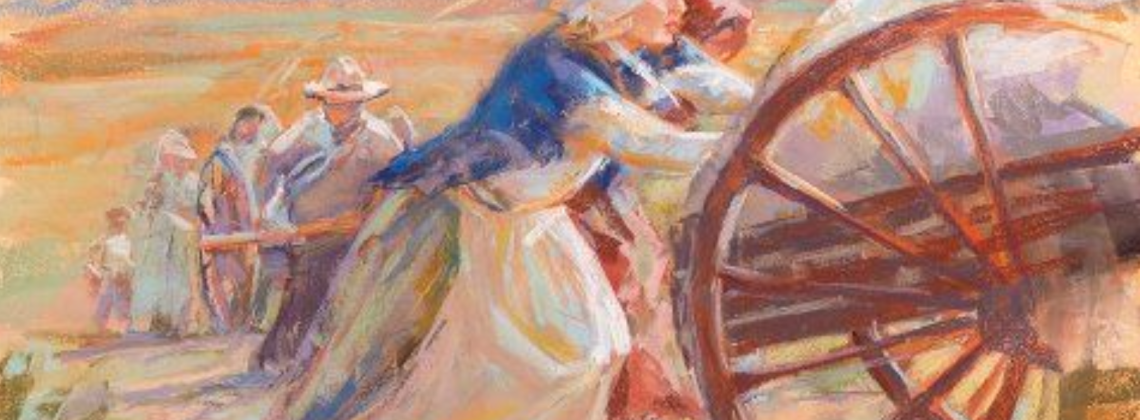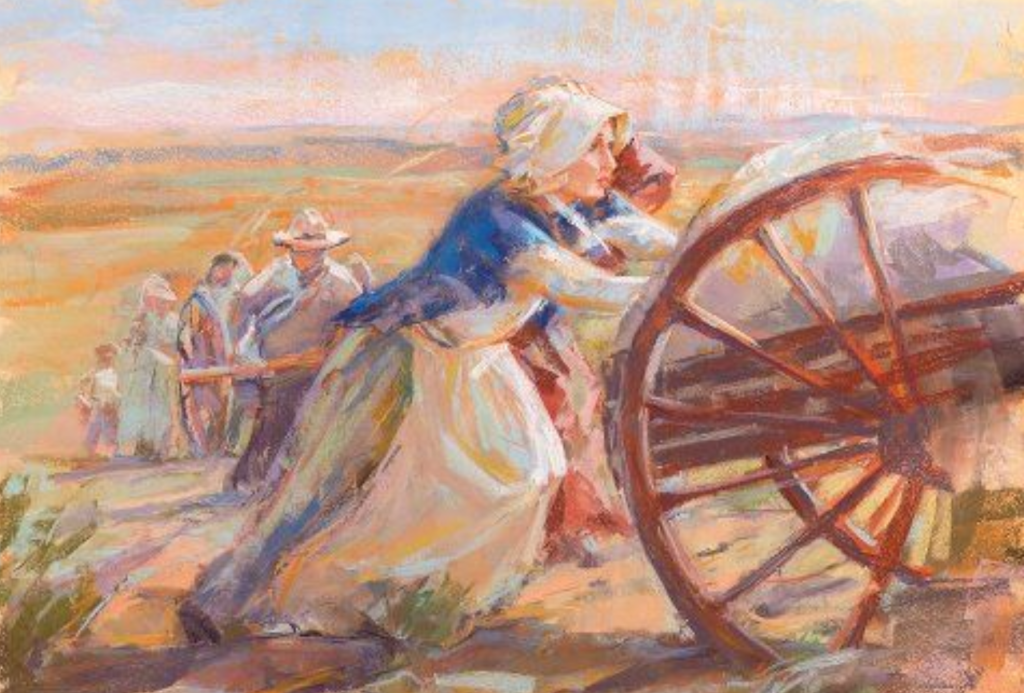

There is still reason to hope
Like many youths, I wasn’t too impressed with my parents’ take on the world. It wasn’t easy in the 1960s to bridge the generation gap. There were notoriously big issues on the table—civil rights, the Vietnam War, the equality of the sexes. It was hard to see past them. Opposing opinions on both sides were infused with white-hot moral fervor, enhanced by the fact that lives were not only on the line but were being lost at a sometimes horrifying scale.
It was difficult in April 1968, for example, to respect anything about someone who openly confessed they were glad Martin Luther King, Jr. was dead. But that was my father. That was just about all the dads in the neighborhood, my teachers at school, even most of my fellow students.
King’s assassination alone didn’t drive the lesson home, but the events of the next few years did: King, then RFK that summer, the Eugene McCarthy candidacy, Kent State, the McGovern candidacy, the curdling and flaking of activists on all sides. There was a growing sense that there weren’t many heroes out there who were smart, selfless, and trustworthy—and those that were should watch out. For many, the lesson of the sixties was: Poke your head up too high, it might get blown off. You could line up with the Sex Pistols’ nihilism—”God, save history, God, save your mad parade / Lord God, have mercy, all crimes are paid.” Or you could find your way toward another form of engagement, built more on hope than wish, and less easily dashed.
This summer I found myself on the other side of the generation gap. My wife and I were with two of our daughters—one in her thirties, the other in her forties—when one burst out, “I’ve never been more excited!” About what? “Kamala!”
I knew enough not to launch into a history lecture, but they could hear my eyes trying to roll. “There’s a revolution happening in this country,” one daughter informed me, “and it’s passed you by. You’re too much of the old world, you can’t see this new one being born.” OK, I said. Let’s see how that goes. Maybe we should wait until events have had their say before throwing a birthday party for this new world?
The last week of July I opened up a publication my church sponsors to find an article: “Hell Hath No Fury Like a Nation Full of Angry Women.”
“Did you feel it last Sunday? Did you feel the world shift?” The author was referring to Vice President Harris. The author was convinced that “we are witnessing (and creating!) a moment of huge change. The world can shift.”
And shift it did. Trump, who had won 39% of women voters in 2016 and 44% of women in 2020, increased his share again in 2024 to 46%.
Suffice it to say, my daughters didn’t take the election well. There were tears. My wife warned me to stay away, as my very presence would be a reminder of just how dashed their dreams were. Their reaction wasn’t performative. One of my daughters actually packed up, bundled up her two children (and my grandchildren), and moved five-hundred miles away. She couldn’t take living in a red state anymore.
Bill Bishop warned us about this in The Big Sort. I confess I never thought it would be sorting my family, but I too have lessons to learn, it seems. The other daughter—who’s in the process of following suit—sent out a link in our family chat to an article by W.E.B. DuBois from 1956, “Why I Won’t Vote.” My daughters’ pessimism is complete, and who knows if they’ll find their way to a more sober, chastened form of engagement. I know I can’t talk them into it. It takes a certain temperament and experiences—and we all must have those for ourselves.
In my reading group, we happened to be going through DuBois’s classic The Souls Of Black Folk just then, and by a strange serendipity I was reading DuBois on voting from the turn of the century and from fifty years later. If the American promise is to be made real, he wrote in 1903, people must “wield for their objects and aims such weapons as the experience of the world has taught are indispensable to human progress. Of such weapons the greatest, perhaps, in the modern world is the power of the ballot.”
“In 1956, I shall not go to the polls,” DuBois later wrote. “I have not registered. I believe that democracy has so far disappeared in the United States that no ‘two evils’ exist. There is but one evil party with two names, and it will be elected despite all I can do or say.”
I hear the same from younger people on both the left and the right every day. If someone as smart and experienced as DuBois succumbed to despair (he soon left the U.S. and died in Africa in 1963), how can I not take them seriously? Then again, DuBois’s complaint centered on the fact that neither party in the 1950s was putting any energy into civil rights for African Americans. What if he had lived to see 1964?
“A patriot,” the poet reminds us, “is a citizen trying to wake / from the burnt-out dream of innocence, . . . to remember her true country, remember his suffering land: / remember / that blessing and cursing are born as twins and separated at birth / to meet again in mourning . . .”
I’ve been thinking about what Abraham Lincoln wrote in some notes for a speech in 1859: “That our principle”—he speaks of a popular government committed to the good and the right—”however baffled, or delayed, will finally triumph, I do not permit myself to doubt—Men will pass away . . . Organizations, rallied around that principle, may, by their own dereliction, go to pieces,” but the principle will win in the end. Did he really believe this or was he giving his audience—perhaps himself—a pep talk?
After all, what reason did Lincoln have for hope in 1859? Dred Scott was the law of the land. Kansas was bleeding. March saw the Great Slave Auction of 436 people in two days, one the largest sales of slaves in U.S. history, all to satisfy the owner’s gambling debts.
But Lincoln did have reason to hope, if he knew it or not. Such things don’t occur anymore, not here, at least, not openly under God’s warm sun. But other things do.
What shall we say (to quote DuBois again) of “this happy-go-lucky nation which goes blundering along” in its tragic, nonchalant way, “just as though God really were dead”? Don’t I do the same sometimes? Speaking intimately here, I disappoint myself constantly—and I suspect I disappoint God even more. Why would a collective do any better?
Hope doesn’t come easy these days, but I don’t permit myself to doubt. With Lincoln and DuBois, with Moms for Liberty and AOC, with Bernie Sanders and Mike Johnson, with Lady Gaga and Kid Rock, with Ruth Bader Ginsburg and Allen Ginsberg—and someday perhaps with my grandchildren too—I’m putting my shoulder to the wheel.
John H. Haas is a retired professor of history and Contributing Editor at Current.
Image credit: Julie Rogers